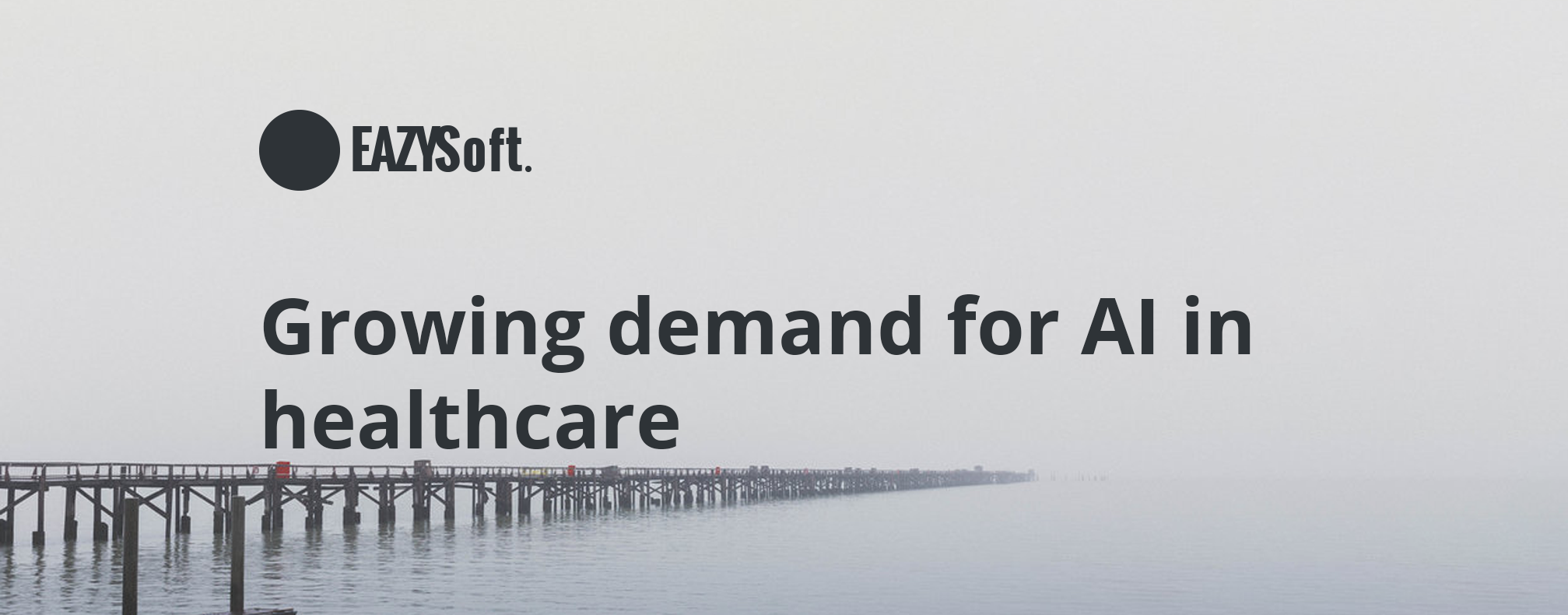
Growing demand for AI in healthcare
Integration of artificial intelligence (AI) tools into hospitals’ workflow has been relatively slow, although patients themselves are ready and eager to use new technologies. The most intriguing promise of AI in healthcare industry is an improvement of outcomes. Human physicians will not be replaced by machines in the future, but AI can definitely assist physicians to make better clinical decisions or even replace human judgement in certain functional areas of healthcare.
The potential of AI is difficult to ignore. From wearable devices collecting patient health data to predictive analytics clarifying probable patient outcomes, AI is a decision engine that will greatly increase how effective and efficient healthcare can touch the lives of more people in stronger ways. AI can also be equipped with learning and self-correcting abilities to improve its accuracy based on feedback. It can assist physicians by providing up-to-date medical information from journals, textbooks and clinical practices to inform proper patient care. AI system helps physicians take a more comprehensive approach for disease management, better coordinate care plans and help patients to better manage and comply with their long-term treatment programmes.
Taking into account the global shift to the patient-oriented practice advantages of AI-powered virtual assistants shouldn’t be underestimated. They will gather all important information to aid in the assessment, direct a patient to the proper type of provider, and will allow patients to access a provider 24/7 so they would always be able to receive help when needed. Patients can interact with virtual assistants through a chat window on a website or via telephone to receive help with their requests such as scheduling, billing and other clinical requests.
Wearable devices will ensure that patients are monitored thoroughly around the clock, giving doctors a more comprehensive data set and ensuring a more informed care plan.With continuously receiving data, doctors will be able to view and validate general wellbeing, and detect illnesses and other irregularities, even before patients under their care become aware of them. Wearable data will become just another data stream of input to the deep learning systems processing large amounts of data, that individually doctors cannot process.
Implementing AI-powered virtual assistants can improve patients’ flow and transfers between facilities. The system can schedule appointments, track which patients are of higher priority at the moment and improve bed management. It will additionally assist with medication reminders.
Despite the progress that many other industries have made, healthcare is likely to be the one market where artificial intelligence can truly have an impact that goes beyond convenience and positively affects human lives. Today, when people expect to get instant answers, virtual assistants come to help. Patients can ask medical questions and receive answers, get more information and reminders about taking medications. AI has the ability to advance in healthcare treatments by improving treatment plans management, analyzing more data in a shorter period of time, prescribing more accurate treatment based on a larger scale of background data collected from wearable devices. Overall patients flow is better managed under the AI-powered virtual assistants leading to better patients experience.
